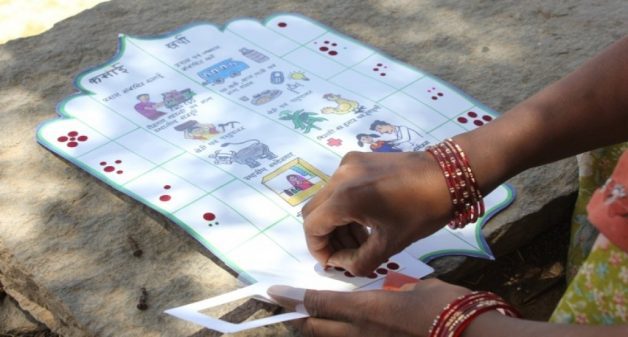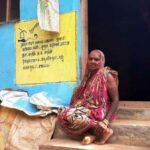The first time I heard about financial inclusion was in one of my banking classes; but at that time, those were just words barely related to the subject. Until recently, it never occurred to me that opening a bank account, withdrawing money from an ATM or having an insurance is a privilege.
Being in an advantageous position in society, access to these financial services has been a part of my routine and hence, I never saw them from a different perspective. These were like any other service available in the open market.
Having spent nearly six months in the Salumber administrative block of Udaipur district, I am now gradually able to understand that financial inclusion is not just a term but a broad concept that has the power to elevate people from poverty and provide them a sense of security.
Lack of institutional support
At Shram Sarathi, I got an opportunity to interact with people who constitute a major part of the informal economy and share a significant portion of India’s GDP but are still excluded from mainstream financial services.
People who are not visible in the eyes of tax authorities seldom get entertained by the banking sector because of the perceived risk. Sometimes, these risks seem to be overstated as there has been a rise in the number of corporate loans turning into non-performing assets.
The risk taking capacity of someone whose livelihood is solely dependent on the informal sector is nothing compared to the amount of corporate loans being written off as bad debts. If RBI policies can allow banks to trust fake businesses then they should also allow genuine businesses with or without documents.
Rural livelihood support
Mahesh Shankar* is in his mid-thirties. He runs a small two-wheeler repair shop in Sabla village, and lives with his wife and two children. He uses the income from his shop for his household expenses and children’s education.
He does not have an alternate source of income. He started by fixing punctured bicycle tyres. Over the last 10 years he has gradually increased the range of services he offers, thus improving his earnings.
In the initial phase of his venture, in order to diversify, he was able to raise capital with the support of a self-help group (SHG). As the business grew, the need for capital also increased. It was beyond the capacity of the SHG.
Elusive bank loan
Visiting local banks for nearly eight months, with a request for a loan of Rs 1 lakh did not lead to anything. The local banks rejected his applications. Lack of documents and such prerequisites were cited as the reasons for his application being rejected.
Shankar did not want to take credit from local moneylenders, as he was afraid that he would be repaying the loan throughout his lifetime. I had met him with the purpose of gathering information; but with much optimism, he thought that I would help him get a bank loan.
Informal credit
Shankar may have been patient all this while to avail credit only through a formal channel but there are many who do not want to go through this arduous process. They’d rather take loans from informal sources so that they can fulfil their immediate needs and sustain their livelihood.
Eventually they get trapped in the vicious cycle of debts, with one loan after another. In the absence of a formal financial institution, people have no choice but to become the victim of informal credit practices where they are charged exorbitantly high interest rates, combined with exploitative terms and conditions.
I met a few women who had mortgaged their jewellery with the local moneylender to meet their financial needs. Luckily, with some assistance from micro finance institutions (MFIs) working in this region, they have been able to repay the loan and get back their jewellery. But that’s not the case always.
Distant inclusion
Because of the stringent policies of financial institutions and the commercial interest associated with their financial services, it could be possible that access to finance cannot be compared with other basic rights.
As far as my understanding is built around how strongly financial inclusion is associated with human rights, it is still a subject of an on-going research to ultimately conclude whether financial inclusion has a direct impact or a derived impact on human rights.
*Name changed to protect identity
Gautam Kumar is a finance professional. As an India Fellow, he worked with Shram Sarathi in Udaipur, Rajasthan, to design a financial product for migrant labor. Views are personal.
A version of this write-up appeared in the India Fellow blog.








